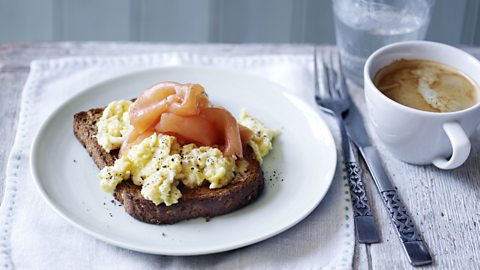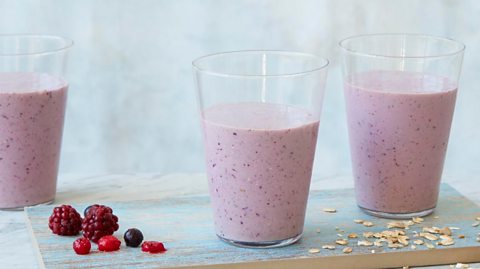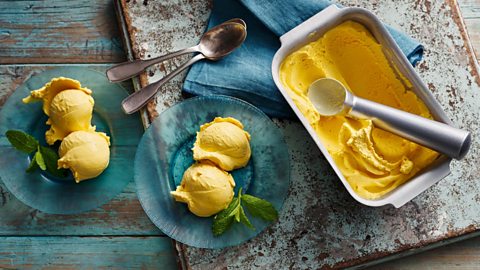How your diet can improve Covid-19 recovery
By Sue Quinn
Food and drink play a crucial part in , nutrition scientists say. As with any infection, your body needs more energy and fluids than usual, and extra protein to repair cells and tissues. But Covid-19 is unlike other infections in many ways. So is there an ideal post-Covid diet to support your return to good health?
How food aids recovery
Your immune system is a network of organs, cells and chemicals that fight infection in a myriad of ways. White blood cells, antibodies and go to work to destroy the invading pathogens (harmful micro-organisms), as well as repair and replace damaged cells and tissues.
Proteins, and the amino acids from which theyÔÇÖre made, are particularly important. During infection, proteins are drawn from your muscles and broken down into amino acids, which the immune system uses to make new proteins, says Philip Calder, Professor of Nutritional Immunology within Medicine at the University of Southampton. Therefore, many people lose weight and notice their muscles getting weaker while theyÔÇÖre ill.
During recovery, you have to add the protein back, Prof Calder says. This provides the building blocks your body needs to go about its business particularly for those whove been immobile in a hospital bed.
Your body needs more energy, too, because itÔÇÖs working harder than usual. ÔÇ£The immune system needs a lot of energy when itÔÇÖs active and dealing with pathogens,ÔÇØ Prof Calder says. ÔÇ£Immune response involves lots of construction work.ÔÇØ Eating plenty of high-carb foods like oats, bread and pasta, plus energy-dense, high-protein foods like full-fat yoghurt, eggs and nuts will help recovery, even if your appetite is low.

Vitamins, minerals and essential fatty acids
Adequate vitamins and minerals are also essential. ÔÇ£TheyÔÇÖre the workers in the factory that carry out all the processes, and are really important,ÔÇ£ Prof Calder says. Certain vitamins and minerals in supporting the immune system and recovery and these include:
- Vitamins A, C, D, E, B6, B9 (folate), B12
- Minerals zinc, copper, selenium, and iron
These micronutrients are found in many foods, including the rainbow of fruit and vegetables, meat, eggs and dairy, so enjoying a wide variety of foods is usually enough. However, the NHS do recommend that people take a vitamin D supplement (10 micrograms per day) in the winter months. Vitamin B12 is only found in animal products, so do take a supplement if you are on a vegan diet.
, including those found in olive oil, rapeseed oil, and oily fish, are important for energy and making new cells. , essential fatty acids that your body canÔÇÖt make enough of and must come from your diet, are especially beneficial for the . Good sources of Omega-3s include sardines, salmon and mackerel. If you are not feeling up to eating much when you are ill, you may consider taking an Omega-3 enriched multivitamin supplement.
No one substance, vitamin or mineral will miraculously speed up recovery - each has a separate role to play.
What you should eat to recover from Covid-19
Prof Calder says a traditional , which is rich in plant foods, is ideal for recovering from Covid-19. It contains all the nutrients your body needs after taking a ÔÇ£hammeringÔÇØ from the infection. ÔÇ£This means a diet with plenty of fruits, vegetables, berries, nuts, seeds and pulses, and also some oily fish and healthy oils is ideal,ÔÇØ Prof Calder says.
Meat is a good source of protein, but plants are excellent too. Quinoa, pulses (beans, lentils, and peas), tofu, nuts are all good sources. If you are vegetarian or vegan, combining different protein-rich plant foods is the best way to ensure you get all the amino acids you need.
This kind of varied, fibre-rich diet also supports a diverse range of good gut bacteria, and a healthy gut lining, both of which play a significant role in , Prof Calder says. He adds itÔÇÖs beneficial to reintroduce food gradually after a period of eating little or nothing at all so as not to overwhelm the gut. ÔÇ£Do it gently,ÔÇØ he says. ÔÇ£Softer foods are easier for the gut to handle. Restoring the gut is going to be reasonably quick, but it might take a few days, as patients get back to eating more.ÔÇØ
According to the , if youÔÇÖre not underweight and havenÔÇÖt lost significant amounts of weight during your illness, try to include the following in your daily diet to optimise your recovery from Covid-19.
- Protein: three palm-sized portions of meat, fish, eggs, beans, pulses, nuts, chickpeas, and meat-alternatives such as Quorn or tofu. (More beans and pulses, less red and processed meat).
- Fruit and vegetables: 5 x 80g portions (about a handful), including fresh, frozen or tinned, ideally in a range of colours.
- Dairy/dairy alternatives: three thumb-sized portions of milk, cheese and yoghurt or protein-rich dairy alternatives that are fortified with calcium (more fortified soya milk and less coconut oil-based products)

Coping with fatigue
Shopping, cooking, and eating the optimum diet for recovery can be difficult if youÔÇÖve lost your appetite, feel tired, weak, or unwell. If this is the case, minimising weight loss, boosting your energy and regaining muscle strength should be a priority, says Kirsten Jackson, registered dietitian, and a spokesperson for the .
ÔÇ£Many people get tied up in trying to eat healthily, but if you are so unwell that you cannot cook and your energy is low then getting any calories in any shape or form is important,ÔÇØ she says.
Milky drinks such as hot chocolate, and smoothies that include some form of dairy, will keep you hydrated and provide energy. ÔÇ£People with a low appetite often find it easier to drink their calories than face a full meal.ÔÇØ
Meal replacement drinks and healthy ready meals can also be a useful stopgap. However, Jackson urges caution when buying drinks.
ÔÇ£Many shakes on the market are actually either for weight loss, so they are very low in calories, or theyÔÇÖre protein shakes, which are just high in protein and not the calories,ÔÇØ she says. ÔÇ£If people ask at their pharmacy, they can purchase more suitable shakes that are better for meal replacements and contain a variety of vitamins, calories and protein.ÔÇØ
Eating little and often can be easier and more appealing than preparing three large meals each day, and the BDA suggests opting for three smaller nourishing meals plus snacks and drinks until you feel better.
Loss of taste and smell
Around half of all patients with Covid-19 lose their sense of smell (anosmia) and with it their ability to taste food. For most people it will return after two or three weeks, but for 10% of patients it may take many months.
ÔÇ£This can have a significant impact on your appetite because you don't have all those normal cues, the smells and tastes, to get your appetite going,ÔÇØ says Sarah Oakley, chief executive of , a charity supporting people who have lost their sense of smell.
She suggests trying foods with other sensory qualities. ÔÇ£Try foods with crunchy and smooth elements, or think about different colours and temperatures,ÔÇØ Oakley says. ÔÇ£That way you get a variety of sensations thatÔÇÖs important when youÔÇÖve lost your sense of taste and smell.ÔÇØ
can help you recover your sense of smell. This involves actively sniffing the same scents twice a day, while concentrating hard, for four months. ÔÇ£Smell training is, essentially physiotherapy for the nose,ÔÇØ Oakley says. ÔÇ£The neurons have been damaged and smell therapy is a healing process.ÔÇØ
Distorted and unpleasant smells and tastes (parosmia) are also a common part of recovering from Covid-19. This can make eating very difficult, especially if parosmia makes some foods taste repulsive. Trigger foods vary from person to person, but often include coffee, garlic, onions, bread and roasted or fried meats. ÔÇ£This can become really quite distressing and difficult to live with,ÔÇØ Oakley says.
When the condition is most intense, you need to get your calories any way you can. ÔÇ£Flavourless meal replacement shakes and cold foods like ice cream tend to be less of a trigger,ÔÇØ Oakley says. ÔÇ£In those early stages, it's not so much worrying about nutritional balance, itÔÇÖs about keeping those energy levels up. Once things improve, you can get the vegetables and the fruit in.ÔÇØ
Eating is such a routine part of our daily lives that itÔÇÖs easy to overlook just how important good nutrition is when recovering from Covid-19.
ÔÇ£Diet is vital in and the better the quality of your diet, the more likely it is you'll recover more quickly and effectively,ÔÇØ Prof Calder says.
This article was first published in November 2021.
